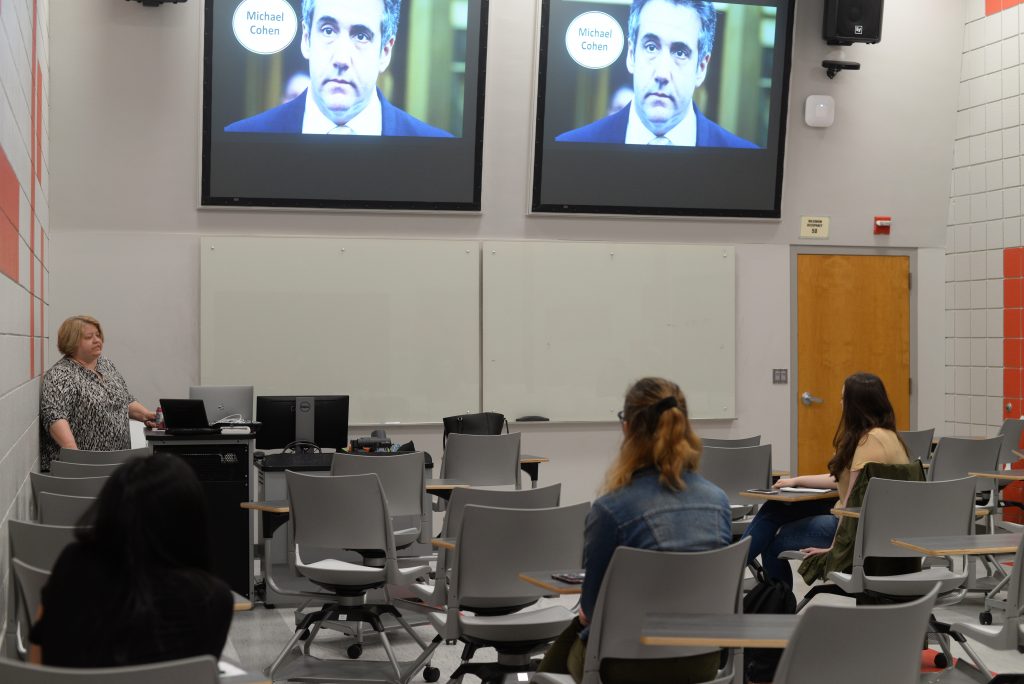
National news has recently been hit with updates on numerous ongoing investigations of government, including Special Counsel Robert Mueller’s investigations of Russian interference in the 2016 presidential election. On Thursday, Wendy Martinek, an associate professor of political science at Binghamton University, held a discussion to explain the complexities of the judicial process and potential outcomes of multifaceted investigations into political campaigns.
During the talk, which was sponsored by BU’s Center for Civic Engagement, Martinek, who specializes in judicial politics, focused on discussed the legal premise for the investigators’ powers. According to Martinek, there are four types of investigators currently looking into President Donald Trump. The first is Mueller, whose investigation concluded at the end of March. Even though the Mueller investigation is now complete, investigations will still continue because of the institutional structure of the United States.
“[There are] so many investigations,” Martinek said. “Every time you turn on the news, you just get slammed with them.”
Mueller’s investigation is not the first of its kind to be launched on a sitting president. In the 1990s, Special Counsel Ken Starr investigated former President Bill Clinton for his role in the Whitewater scandal and for lying under oath. Mueller’s investigation deals with Russian government interference, WikiLeaks, Middle Eastern interference, the Trump Tower Moscow Project, Paul Manafort and any potential obstruction of justice.
Martinek said the Mueller investigation gave rise to three investigations from U.S. attorneys: one in the eastern district of Virginia, about Lieutenant General Michael Flynn, Trump’s former national security adviser, regarding how he never registered as a lobbyist for a foreign government; another in the southern district of New York, examining campaign conspiracy, Trump’s inauguration and Rebuilding America Now, a pro-Trump political action committee and an investigation in Washington, D.C., focused on the actions of Maria Butina, an accused Russian spy.
Letitia James, New York state’s attorney general, is also launching investigations on the president’s real estate dealings, Trump Tower, meetings with Russian officials and possible violations of the emoluments clause of the U.S. Constitution.
Martinek said that through congressional committees, such as the House Committee on Financial Services and the House Intelligence Committee, Congress has the power to investigate the president, his finances and any potential involvement in foreign interference.
Martinek also answered students’ questions on a variety of topics relating to the investigation, including media coverage of the investigations and possible bias in the numerous investigations as well as what the redactions in the Mueller report mean, following the talk.


